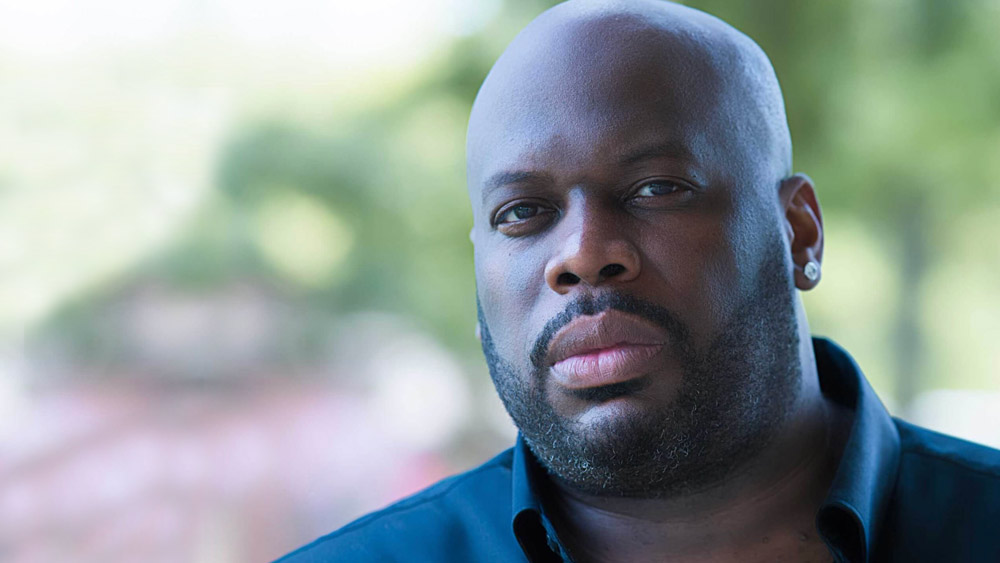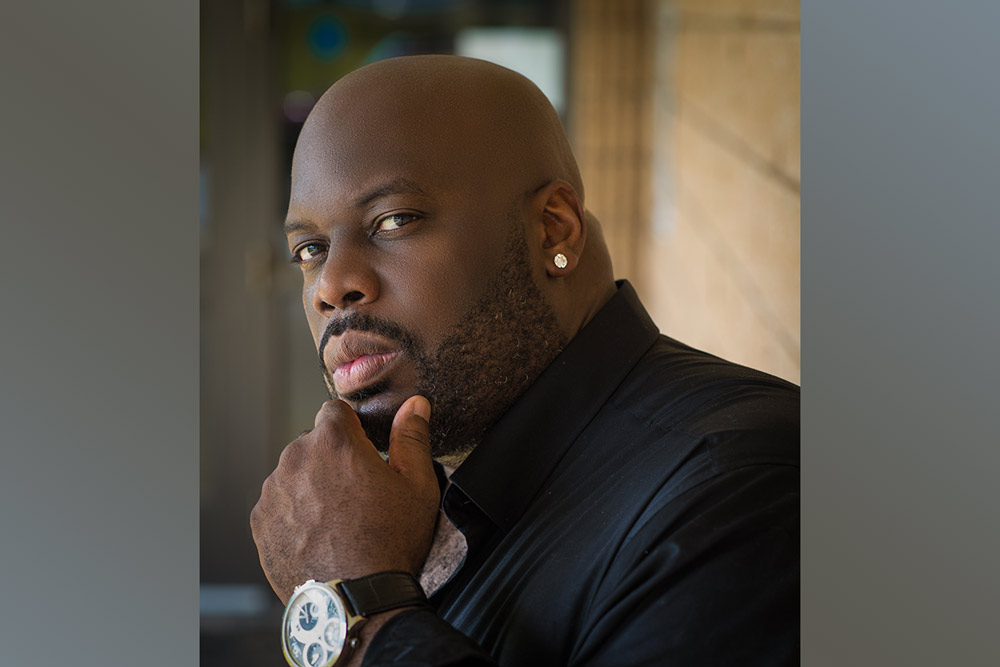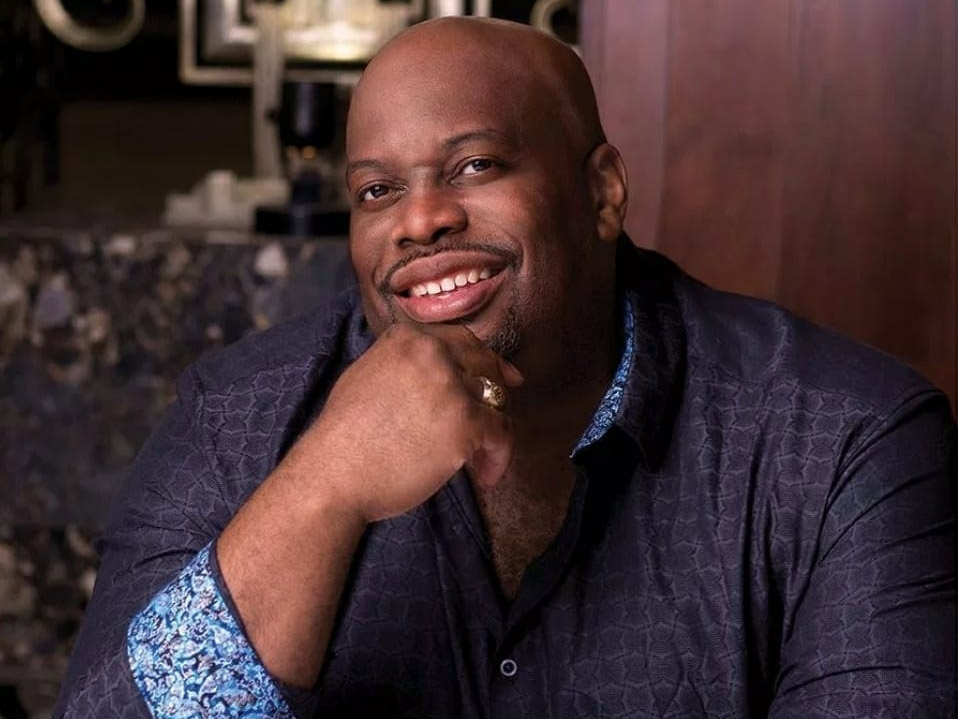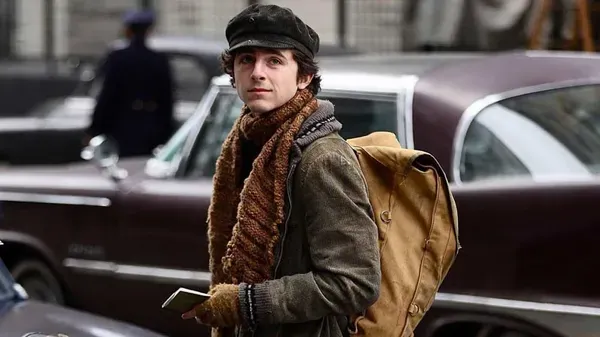
Nov 6
Acclaimed Opera Bass Morris Robinson Is Back at Boston Lyric Opera in 'Aida,' Where It All Began
Nicholas Dussault READ TIME: 9 MIN.
The Boston Lyric Opera's one-night-only performance of "Aida" on November 10 has very special meaning to one of its artists. Morris Robinson, in the role of Ramfis, will be performing 25 years to the day of his very first operatic performance, which was also in "Aida" at the Boston Lyric Opera. The powerful bass, who considers Boston his musical home since it all began here, has enjoyed an impressive career throughout which he has earned critical raves for appearances all over the globe.
The former college football player has performed at the Metropolitan Opera (the Met), San Francisco Opera, Lyric Opera of Chicago and Opera Australia, to name just a few. This season includes his current performance of Ferranco in "Il Trovatore" at the Houston Grand Opera, Banquo in Verdi's "Macbeth" with the Atlanta Opera, Mozart's "Requiem" with The Boston Symphony Opera and the world premiere of the Met's new production of "Aida," which opens December 31.
Robinson is featured on the 2022 recording of Mahler's Symphony No. 8 with the Los Angeles Philharmonic, which earned him a Grammy Award that he keeps on his mantle between his distinguished alumni trophies from Boston University and The Citadel. He laughingly admits that when he got the nomination, his kids and his niece were there and "They said okay and didn't really care. And that's the beauty of home, they will not let your head get but so high."
Recently EDGE had the chance to chat with Morris about his journey from the gridiron to some of the greatest opera houses in the world.

Source: Morris Robinson
EDGE: Which came first, football or opera?
Morris Robinson: In terms of opera, football came first. In terms of singing, singing always came first. I remember way back when I was seven years old wanting to go play Pop Warner football but I was too big to play with my age group. At age seven, I was heavy enough to play with 10–11-year-olds and that's just not a good match. My mother took me to audition for The Atlanta Boy Choir. I was the first soprano singing "My Country 'Tis of Thee," but I did not like the choir. After rehearsal we'd go to the mall and all the cool kids from the football team were walking around because they'd just gotten out of practice. I always longed to be part of that fraternity, but music always came first.
EDGE: When did you get into football?
Morris Robinson: I played one year in middle school when I was not in the chorus. I did not want to be in the chorus. I never wanted to be in the chorus. But then I auditioned for the Northside School of Performing Arts. My mother made me be in the band. At the very first football game I realized that I don't want to be in the band. All the cool kids were out, you know, (on the field). I quit the band. I remember the band director walking out on the field during football practice and saying, "What the hell are you doing?" He thought I was throwing away my life because I had just made all-city band. I was like, "Nah, bro. I'm gonna stay out here and hit people." It seemed like that's where all the cool kids were. There was always this dichotomy of existence and I excelled at both. I was a good athlete but football didn't come naturally to me. I had to work at it. Music always came naturally for me.
EDGE: Do you come from a musical family?
Morris Robinson: I'm a Black kid from Atlanta, GA. I grew up in church. The truth of the matter is you can't grow up in Georgia, go to church every Sunday and not be from a musical family. My dad was a Baptist minister, my mother was president of the gospel choir. My grandad was a Baptist minister. There was always singing and gospel music in my house from the moment I woke up as far back as I can remember. There were six people in our house, my three sisters, my mom and dad, and me. I was probably the worst singer in the house. I just never had a voice that was suited for gospel music.

Source: Tina Guiterrez
EDGE: You went to Citadel?
Morris Robinson: Yes, that's the military academy of South Carolina. It's our version of West Point. I think we're better. We played them in football. We beat them the last three or four times. We beat Navy when I was there, twice. It's a great school. My son is now there playing football.
EDGE: Does he sing?
Morris Robinson: He definitely has a musical ear. But by the time he got to middle school and high school and they figured out who his dad was they burned him out. He was in every chorus, every auxiliary chorus. He was in "The Lion King" in sixth grade. It was too much. He said "I'm going to do something easier. I'm going to play football." I don't think he's ever coming back to music because he never invested in it. He's a computer guy. He's way smarter than his daddy.
EDGE: You played football for four years at Citadel. Were you doing any music?
Morris Robinson: A couple of my buddies wanted to start a gospel choir on campus and as the military academy goes, I was the best pianist on campus. And I couldn't play at all, but I ended up playing and directing the choir. The word traveled that I went to a performing arts high school and I ended up doing solos for the cadet choir. I was singing "O Holy Night" for the Christmas candlelight service every year and the national anthem at games. They found out I had this hidden talent and they started utilizing it on campus. I never thought anything of it other than it was a good party trick to have. I ended up singing at all my friends' weddings for free, the Lord's Prayer, Ave Maria, things like that for the next several years.
EDGE: How did you get from there to acclaimed opera singer?
Morris Robinson: I was always debating whether I was going to do law school or what because I felt like I was going to do something more than be a salesman for a corporate company. Unbeknownst to me, my wife Denise set up an audition for the Choral Arts Society of Washington. One Saturday morning I went to run some errands and when I came back she said, "By the way, you have an audition at one o'clock." So I went to the store and bought a Mozart Requiem score because that was the only thing I knew. Turns out I sang the "Tuba Mirum" for Norman Scribner, a very well-known choral conductor who ran the Choral Arts Society of Washington for years. As soon as I stopped singing he stopped playing and said, "You absolutely need to be singing." I was there for about a half of a year then I took another job in New England, and that brought me to Boston. We were riding through Boston doing a house hunting tour and we passed the New England Conservatory of Music and my wife said, "You might as well go in there and sing for them too." So I did.







